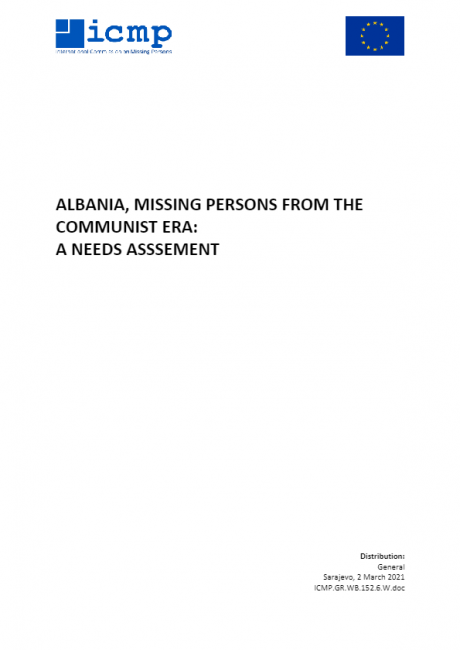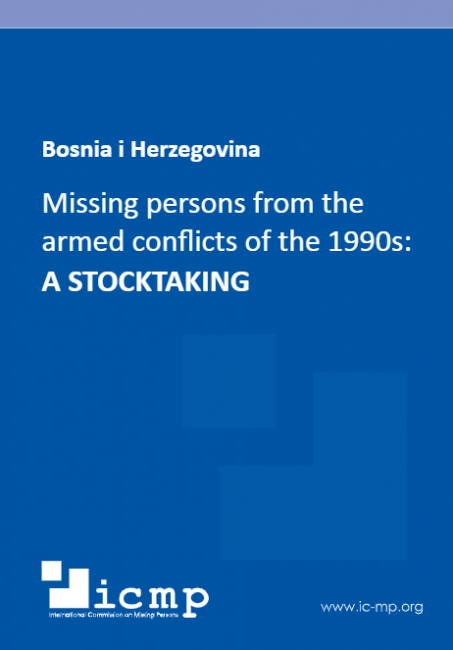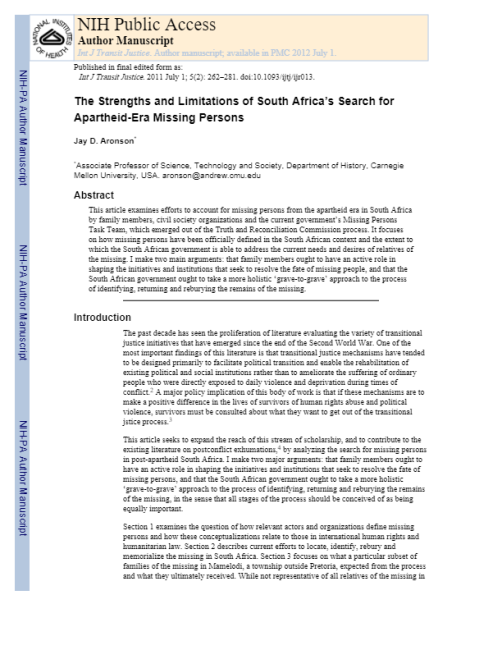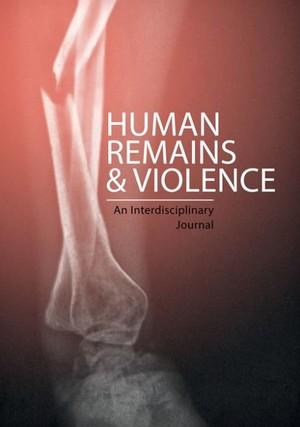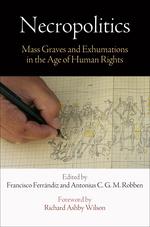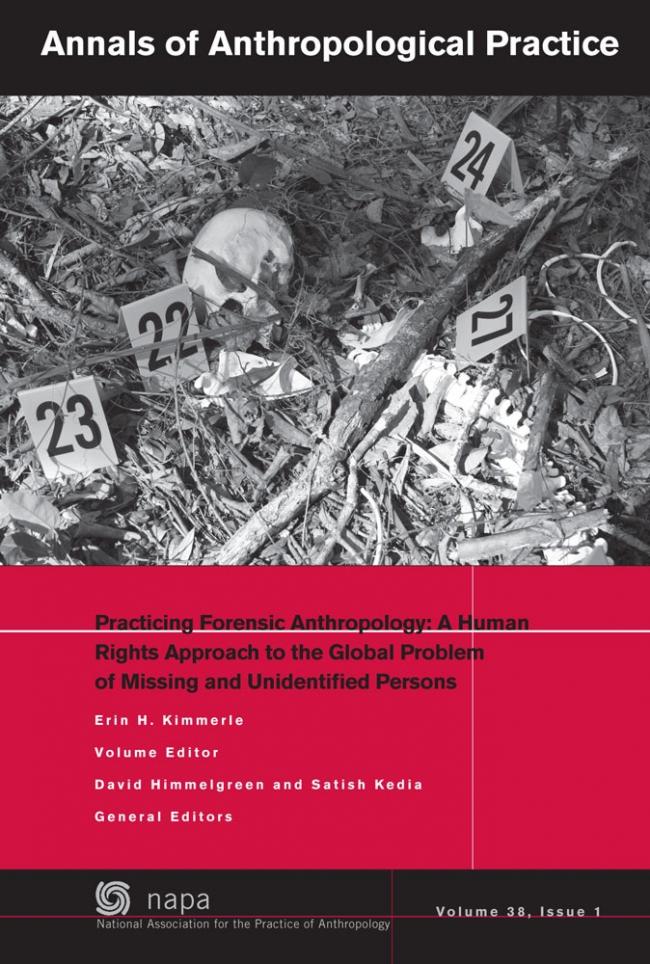
Where are they? Missing, Forensics, and Memory
This paper explores the roles of forensic anthropology, archeology, and forensic investigations in transitional justice processes from a Global South perspective. The aftermath of Peru's internal conflict as well as other Latin American cases are discussed to examine the possible connections between the social conditions of victims and the effectiveness of the investigative efforts. At present, global politics of memory are not as inclusive as they should to attain true guarantees of nonrepetition. In many countries of the Global South there are no national search strategies or revised public policies for the search of missing persons, and in many places the families of the victims, victims themselves, are not acknowledged stakeholders with a voice, and are simply neglected in investigations, which often focus in prosecutions and much less so in victim identification or restoration. Forensic investigators need to gather as much antemortem and postmortem data as possible to fully understand the roles of both perpetrators and victims at the time of the events, and, in certain contexts, to do so, they face the need to develop multitasking skills. More applicable scientific standards and emic categories that both investigators and victims can understand should be developed. Forensic investigators can contribute substantially to advocacy supporting human rights against impunity and exclusion, transcending the strict scientific sphere.


